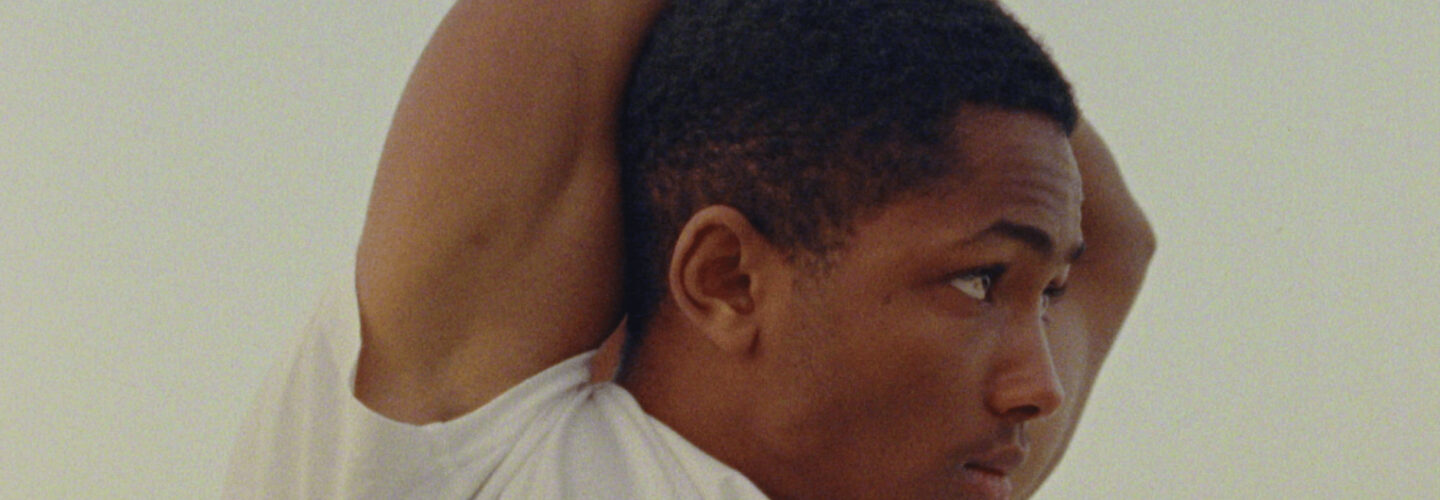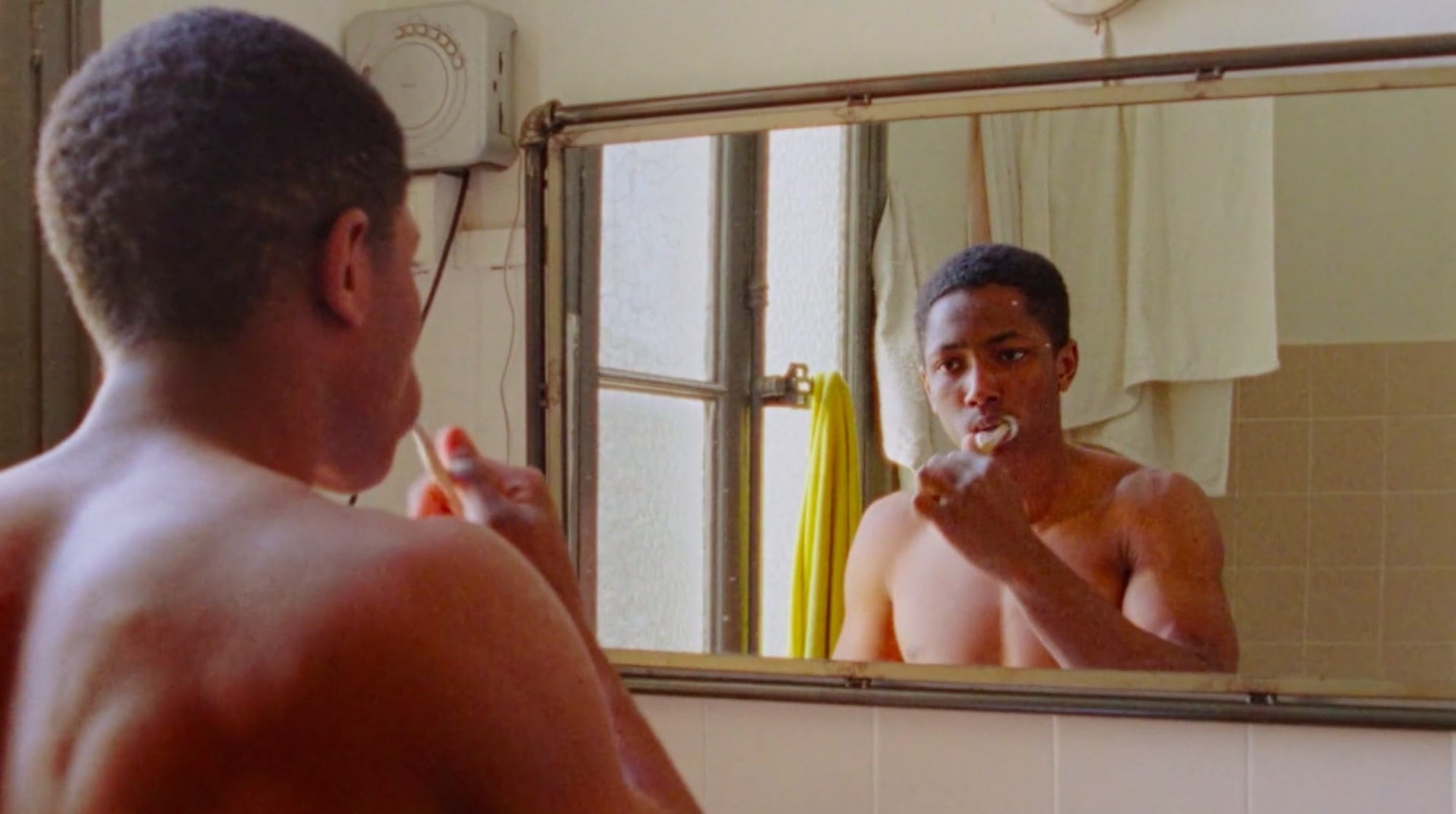
Prado Beach, Marseille. Boys engage in freestyle acrobatics in an open-air gym, their bodies striking dynamic poses against the bright blue French sky. Dubbed the “Eldorado of common people practising uncommon skills”, it is a place for young adults to express themselves and find a sense of community. At the heart of the story is the eponymous Ali, a quiet, taciturn individual who is most alive when spinning on metal bars, stretching his legs to the sky while trying out new tricks. Julien Soulier takes a deeply poetic approach in Ali, combining voiceover with portraiture, VHS footage with grainy 16mm, resulting in an intimate exploration of boyhood, gymnastics and the use of sport as a personal art-form. We talked to the French director about finding this community, building up a sense of trust with its members and discovering the right poetic approach for the project.
How did you uncover this story? Is this an open-air gym near you?
At first I went to discover this discipline with my camera on another Streetworkout field in Paris. I was impressed by the mindset of these guys but I wanted a contrast with wide open spaces and above all to show acrobatic gymnastics rather than weight training. So I went to the south of France, to Marseille, on the Prado beach. I had heard that a certain Ali was training there. I immediately wanted to know more about him so I jumped on a train to meet him and ask him lots of questions.
Is this just a natural subculture that has sprung up as a result of these bars being available on the beach?
Initially Streetworkout is a discipline that has existed for a long time in the US. There’s a story of some old prisoners who wanted to do weight training as they couldn’t afford a gym. Now there are other communities in Europe that are breaking the rules of acrobatic gymnastics. Guys who do acrobatics in the street. We are really witnessing the emergence of a new way of doing sport.
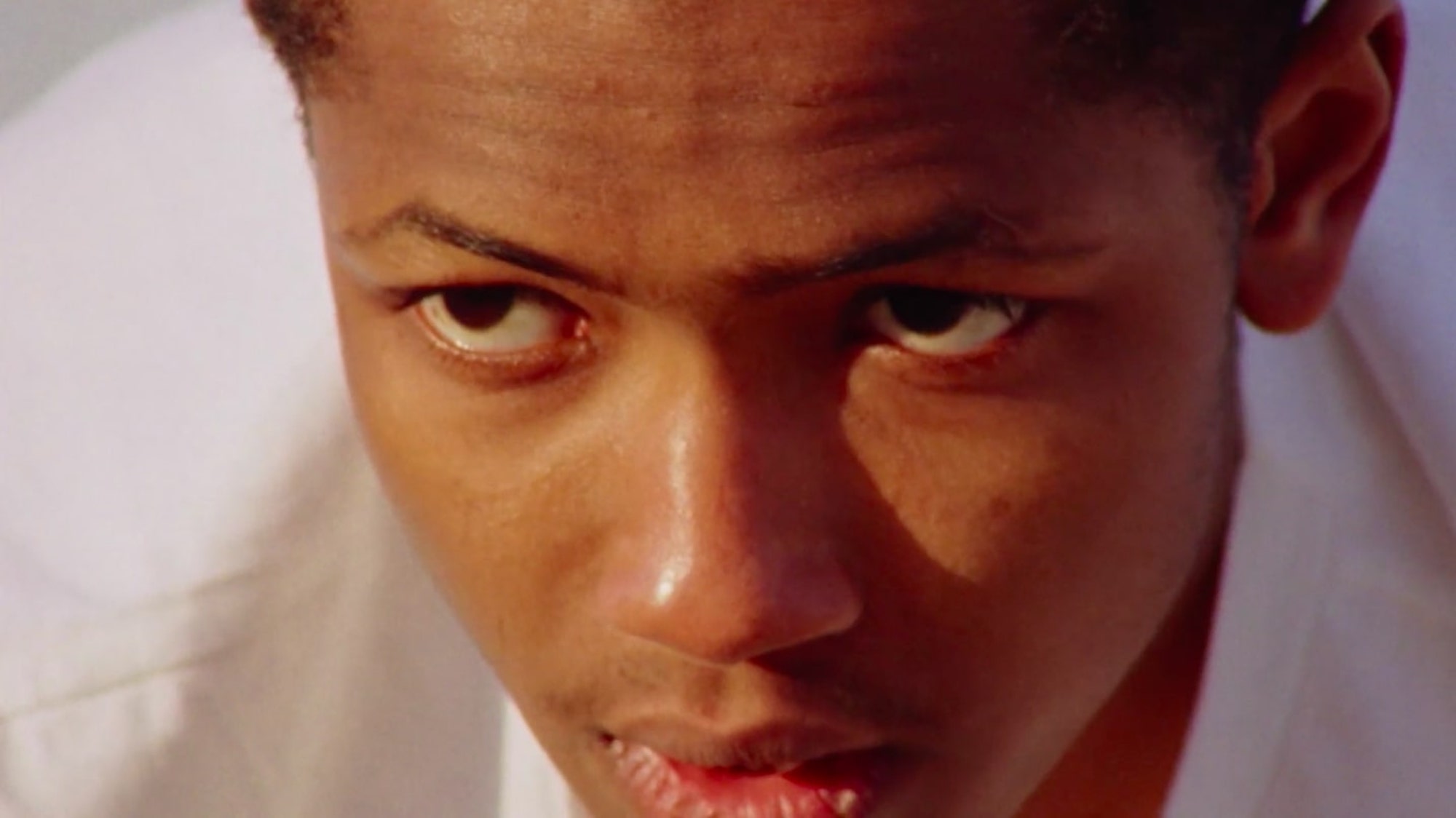
How did you want to approach this story in terms of tone and approach? You seem to mix gorgeous physical displays with more poetic moments. What was it like finding the balance in the edit?
I was impressed by this new discipline but I didn’t want to make a sports performance film. My intention was to make a portrait of Ali but also of this new generation of modern athletes. I wanted to bring poetry and sweetness to the ‘sport’. My intention was to film his movements as an expression of his feelings but also to let the scenes live as in a fiction; to be as close as possible to him as if we were in his mind. For the narration I used the hours of discussion we had together and then we wrote a voiceover the new generation could identify with: no technical terms, no exclusive feelings, just sincere emotions. I wanted to paint a picture of this community in the largest sense.
We wrote a voiceover the new generation could identify with: no technical terms, no exclusive feelings, just sincere emotions.
As I had spent a lot of time beforehand observing him alone and with others, I tried to board up some of the scenes as much as possible to give him the freedom to express himself on the bar as he did with his friends during the shoot. I used a zoom lens to get out of the way. In the editing process I had to find the right balance between performance and poetry. At first I edited without voiceover, without music, just with sound recordings. I wanted a narrative structure that could be understood without the need to put words to the images.
What’s the core difference between this freestyle gymnastics and the likes you’d see in the Olympics?
It frees itself from codes. It is to gymnastics what breakdance is to dance. A free discipline.
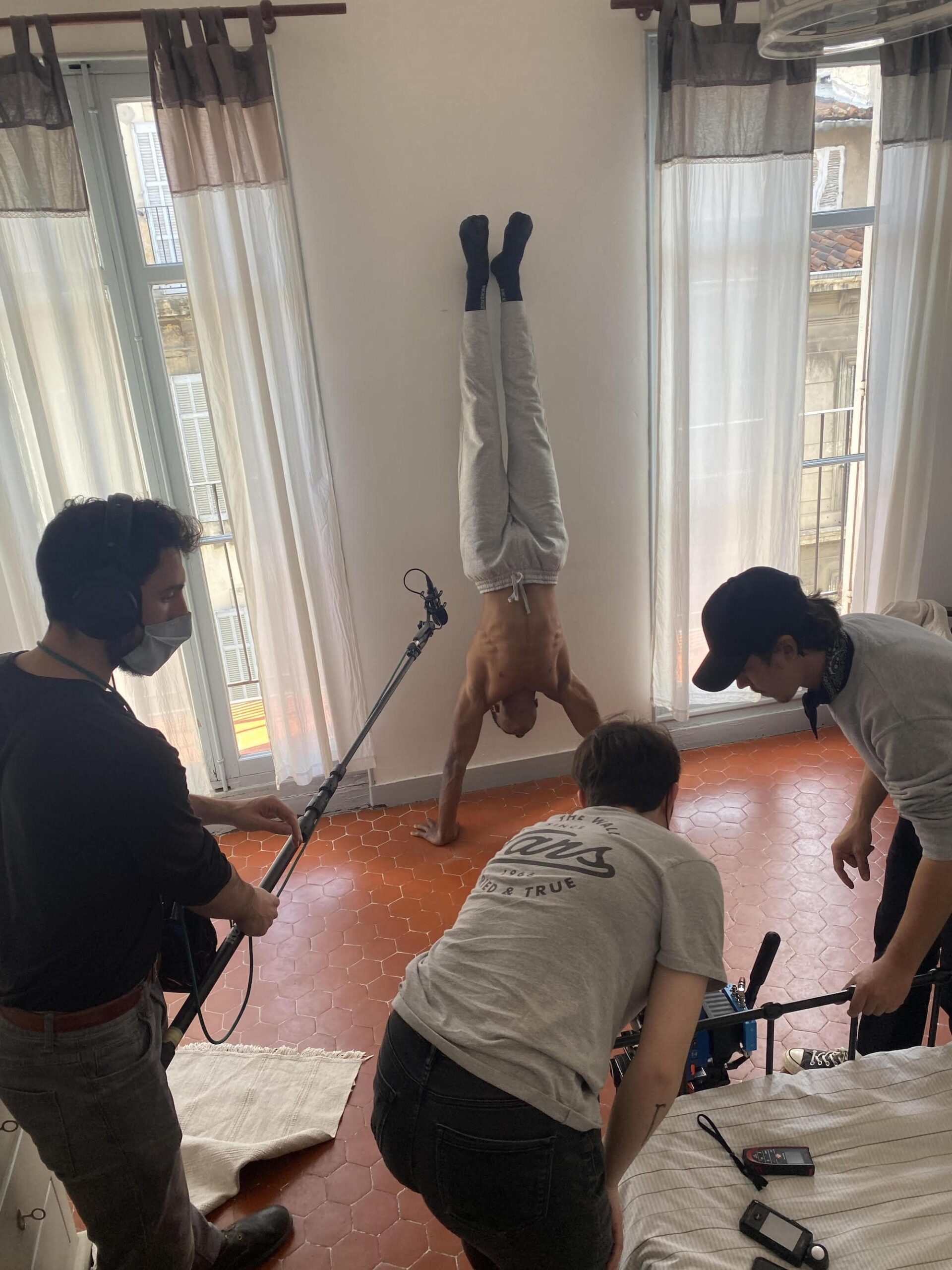


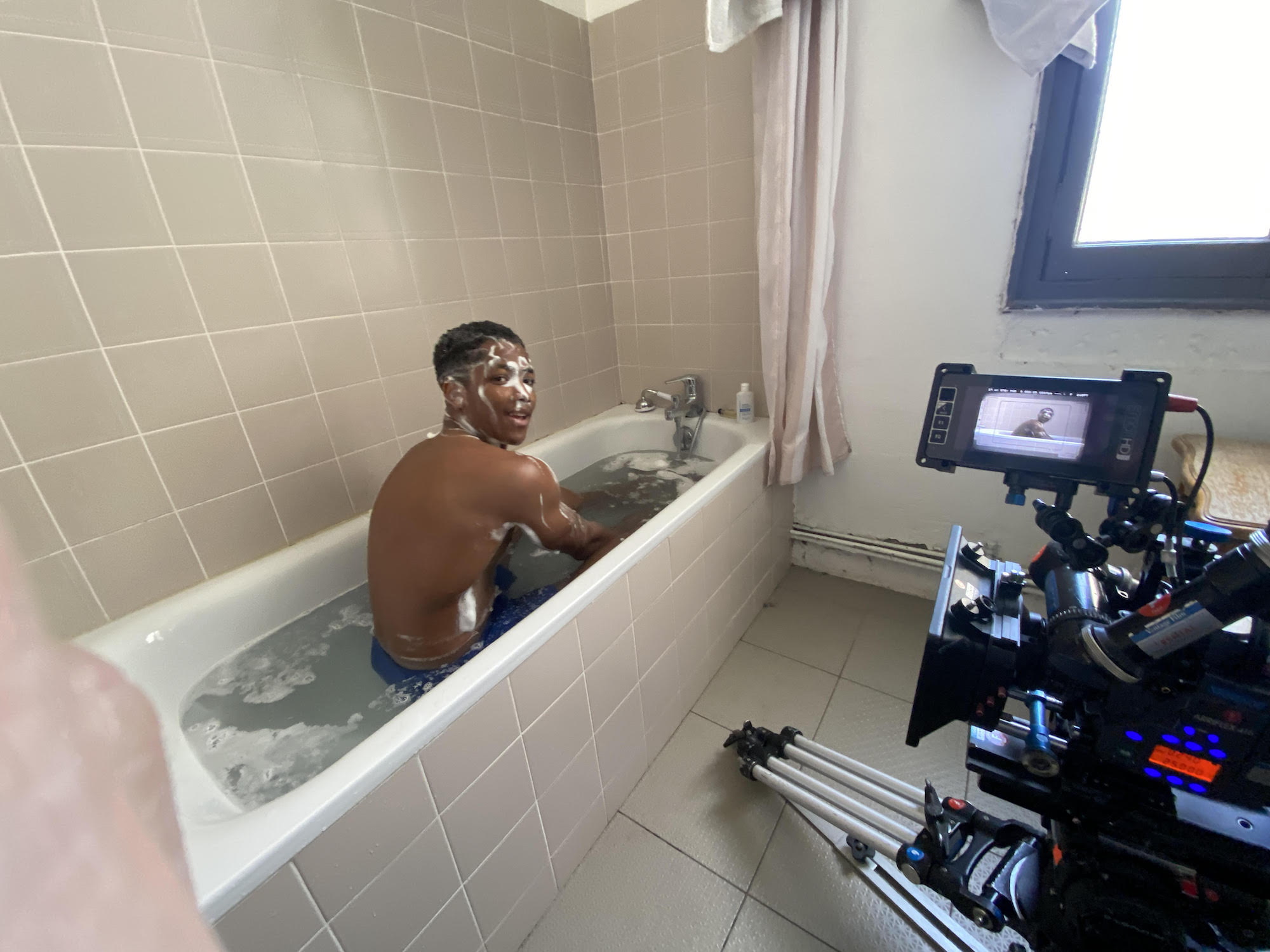
The light in the film is fantastic. Lots of sun and even a few sunsets. Is Marseille always like this or did you consciously choose certain days to shoot on?
The light in the south of France is magical. I wanted to go in that direction to accentuate the aspect of freedom. We voluntarily shot at sunrise and sunset because we spent a day with him and we wanted the spectator to follow this day as if he were there.
In the editing process I had to find the right balance between performance and poetry.
You contrast 16mm film with home video footage. Did you want to opt for a type of film grain that complements home video? Additionally, are these shots that Ali and his friends have taken themselves?
The choice of 16mm was well thought out. I wanted the grain of the film to break the smooth and modern aspect of this new discipline. Moreover, I really wanted to make a photographic film with well-controlled frames. This is why the use of the VHS camera was useful. It was at the service of and complementary to the 16mm. It told of moments taken on the spot and of stolen moments of complicity. I gave it to some of the guys in the field to make them feel more comfortable expressing themselves. The VHS is at the service of the documentary. I wasn’t limited or constrained by the equipment. Whenever I wanted to, I took it out and filmed.
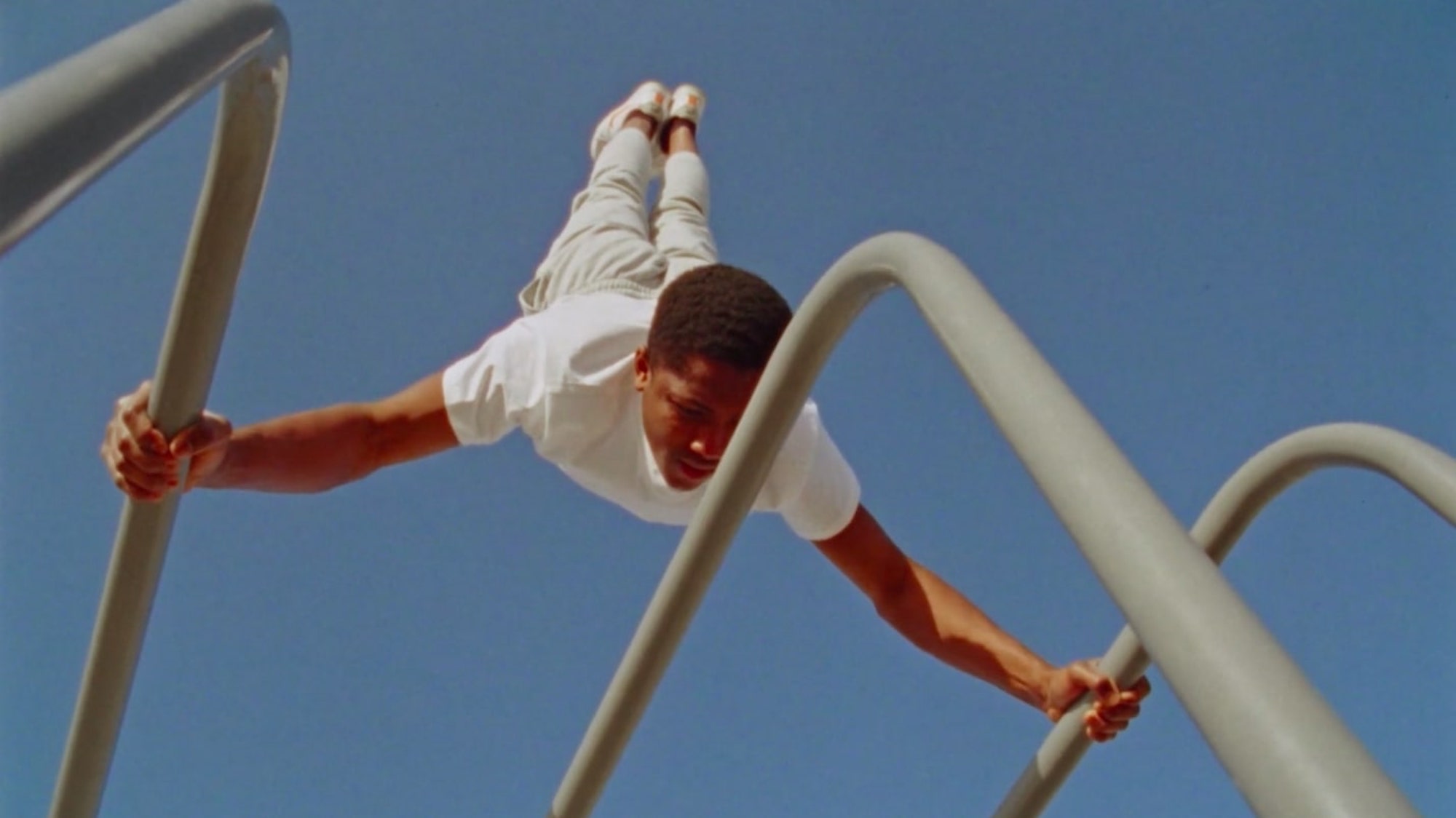
We see Ali doing his morning routine and we get up and close with his exercises. What was the trust process like to get such intimate access?
I went to see him in Marseille several times. Sometimes with a camera, sometimes just in passing because I have family in town. He very quickly opened the door to his house for me. We were also a small team of 3 people. Amandine as the chief operator, Léo doing focus, and me. Sometimes I was just alone with him in a room so he had become accustomed to the presence of me during these months of discussion.
I wanted the grain of the film to break the smooth and modern aspect of this new discipline.
The voiceover ends with: “This is Ali’s story and the story of many others.” Why focus on Ali in particular? Do you think he best represented the kids in this area?
By ending this way I did not want to end on the discipline but on its mindset which is, in my opinion, representative of a part of this new generation. This new generation is trying to free itself from the rules. It is to them that I wanted to speak. To all those passionate young people who want to express themselves, whether through art or sport; for those who are looking to differentiate themselves and not fit into the standards imposed by our society.
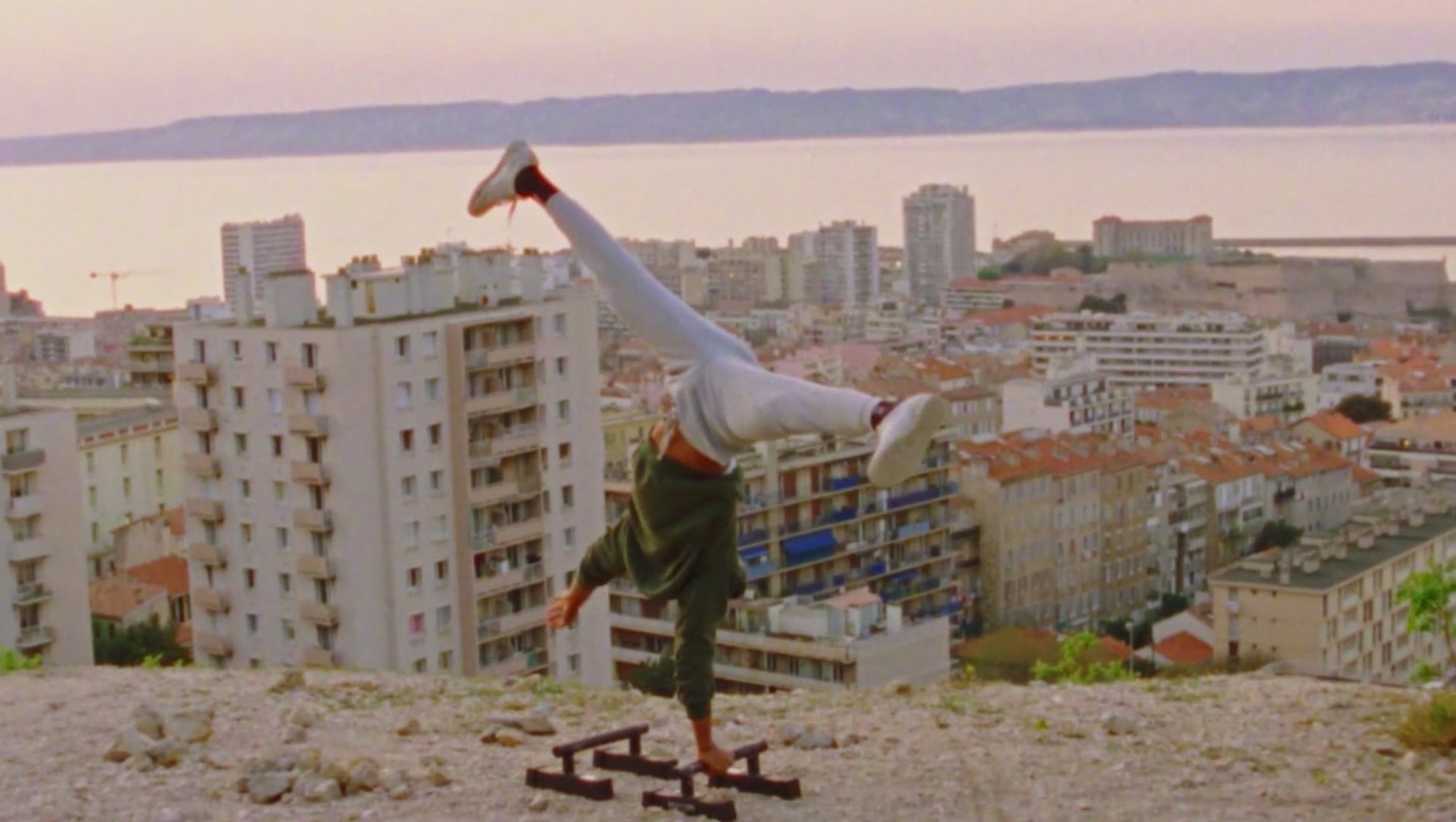
What are you working on next?
I have a larger documentary in development in Atlanta that I would like to produce and direct next year. At the same time I am shooting clips and ads and developing the next edition of my magazine.

